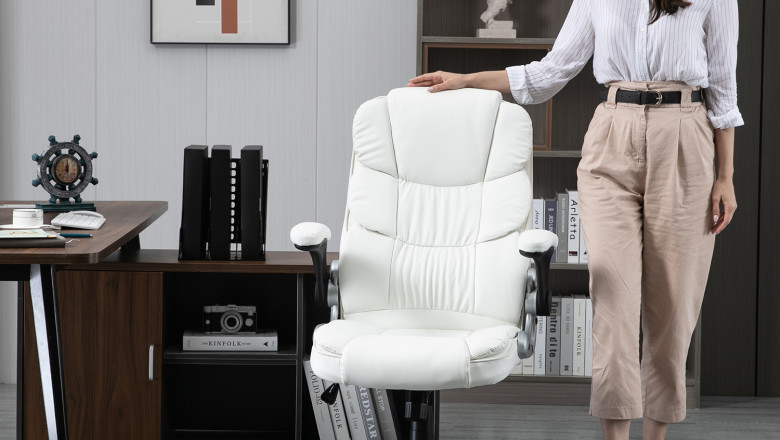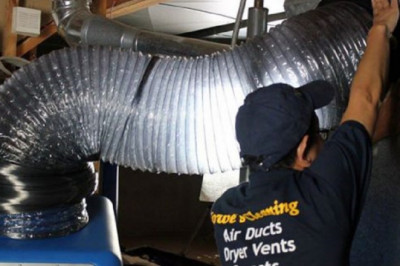views

When working in an office, you should focus on maximizing your productivity. Just because you work for eight hours a day doesn’t necessarily mean that you are productive for all eight hours. According to research cited by Inc.com, the average office worker is only productive for about three hours a day. Statistics such as this disheartening, but you can improve your productivity in the office by avoiding the 12 following bad habits.
1. Personal Calls and Text Messages
Unless it’s an emergency, you shouldn’t make or receive personal calls and text messages. Each minute you spend on a personal call or text message is a minute of lost productivity. A survey conducted by the office staffing agency OfficeTeam found that office workers spend an average of 56 minutes on personal calls and text messages per day.
You can still use your phone for work-related calls and texts. For personal communications, though, you should wait until you are off the clock so that it doesn’t negatively impact your productivity. Besides, most employers prohibit workers from using their phones for personal calls and texts while they are on the clock.
2. Multitasking
What’s wrong with multitasking? Performing two or more tasks simultaneously may sound like an effective way to boost your productivity in the office, but it will likely have the opposite effect. The human brain is hardwired to focus on a single task at any given time. When confronted with multiple tasks, it’s unable to process them, resulting in a dramatic decrease in productivity.
According to a study published by the American Psychological Association (APA), workers who multitask are about 40% less productive than their counterparts who don’t multitask. Other studies have linked multitasking to a lower IQ, which can also prove detrimental to your productivity. Therefore, you should focus on a single task, and after completing it, move on to the next task.
3. Checking Email Too Much
Email offers a fast and convenient way to communicate with your colleagues and coworkers. It only takes a few minutes to compose and send an email, whereas direct mail can take several days to reach the recipient. With that said, you should limit the number of times that you check your inbox.
Like the other bad habits listed here, checking your email too much can kill your productivity in the office. Research shows that the average office worker checks his or her inbox 15 times per day. Assuming it takes you just three minutes to read all your messages, checking your email will consume about 45 minutes of your workday. So, how often should you check your email? It depends on the degree to which you use email for work, but a good rule of thumb is to check your inbox no more than once an hour.
4. Attending Unnecessary Meetings
Assuming you work for a large company, you’ll probably spend at least some time attending meetings. Unless your attendance is absolutely needed or required, however, you should skip the meeting.
Unnecessary meetings rank as one of the top sources of lost productivity in the office. According to The Muse, middle-level executives spend over one-third of their total working hours in meetings, whereas upper-level executives, including CEOs and CFOs, spend up to half of their total working hours in meetings. Regardless of your job position, attending unnecessary meetings is a waste of time that will ultimately kill your productivity. Furthermore, many companies record their meetings, meaning you can watch a video snapshot to gain a better understanding of the topics covered during the meeting.
5. Not Taking Breaks
Don’t forget to take regular breaks when working in an office. Contrary to popular belief, working nonstop isn’t a recipe for success. No matter how much coffee you consume, you’ll eventually become mentally and physically fatigued, which will manifest in the form of lower productivity. It’s an all-too-common occurrence that kills productivity in the office.
According to a survey cited by Forbes, nine in 10 U.S. workers feel more refreshed after taking breaks. Breaks offer an opportunity for your mind to reset. After taking a short break, you can return to your desk, feeling more refreshed.
6. Taking Excessively Long Breaks
While taking breaks is essential, especially when working eight or more hours a day, you shouldn’t spend too much time in the breakroom. Taking excessively long breaks is just as bad – if not worse – as not taking any breaks. If you take three 30-minute breaks per day, you’ll spend an hour and a half in the breakroom each day. Some workers spend even more time in the breakroom, thus killing their productivity.
So, how long should your breaks be? For most offices, 10 to 15 minutes is the sweet spot. At this length, you’ll feel mentally and physically refreshed without wasting a significant amount of time. Of course, you should follow your employer’s guidelines regarding break frequency and duration. If your employer only allows five-minute breaks, you shouldn’t spend more than five minutes in the breakroom.
7. Stressing Over Small Things
Try not to stress over the small things. Stress can and will affect your productivity in the office. Research shows that lost productivity is the most commonly reported symptom of work-related stress, with 41% of workers saying they are less productive when stressed.
As your stress levels rise, you’ll feel mentally overwhelmed and exhausted. Stress won’t necessarily impact your physical health, but its mental effects can hinder your productivity nonetheless. To stay productive, you must learn to manage your stress levels. Allowing otherwise small things to instill stress will only kill your productivity in the office.
8. Not Using a To-Do List
If you aren’t using a to-do list, you are missing out on one of the most effective ways to maximize productivity when working in an office. A to-do list offers a clear and concise roadmap for your workday. When you enter the office at the beginning of a workday, you can reference this list to determine which tasks you need to complete.
Consider using the Ivy Lee method when creating, as well as using, a to-do list. Pioneered by American publicity expert Ivy Ledbetter Lee over a century ago, it’s more relevant than ever in today’s modern workplace. With the Ivy Lee method, you create a list of your six more important tasks for the following workday, prioritized according to importance. You can then focus on one task at a time, starting with the most important task at the top of your to-do list.
The Ivy Lee method is both simple and effective at maximizing productivity. It reveals your six most important tasks of the day, thereby keeping you focused and on track. You can experiment with other types of to-do lists, but most office workers and professionals will agree that none compare to the Ivy Lee method.
9. Skipping Breakfast
There’s a reason it’s called the most important meal of the day: Breakfast provides your body with the calories and nutrients it needs to function properly. It’s estimated, however, that about one in four workers skip breakfast. If this sounds familiar, you should make the necessary changes to your daily routine so that you have time to eat breakfast each morning.
Skipping breakfast may give you a few extra minutes in the morning, but it can kill your productivity. Our brains are powered by glucose. When you consume calories – whether from protein, fat, or carbohydrates – your body will typically convert them into ready-to-use energy known as glucose. If your brain doesn’t get enough glucose, it will slow down. You’ll experience other symptoms as well, including hunger cravings. Because our brains use glucose for energy, though, skipping breakfast can cause a sudden decrease in productivity.
There are ways to prepare a nutritious breakfast in as little as 10 minutes. You can cook scrambled eggs, for example, in the microwave. Just crack a few eggs in a medium-sized bowl, place the bowl in the microwave and set the timer for two minutes. Along with some fresh fruit and toast, microwaved scrambled eggs will provide your brain with the glucose it needs to stay productive.
10) Neglecting to Upgrade Office Equipment
Another bad habit that can kill your productivity is neglecting to upgrade your office equipment. Whether you work in a large corporate office or a small home office, you’ll eventually need to replace your equipment. No piece of office equipment lasts forever. Over time, your office equipment will degrade to the point where it no longer functions as intended.
If your office chair has a broken caster on the bottom, it probably won’t roll smoothly. If your desk has a finicky cabinet or drawer, you may struggle to open it. These are all things that can kill your productivity. With a broken caster, you’ll have to use greater force to move your office chair around your workstation. With a broken cabinet or drawer, you’ll spend more time adding and retrieving files from the respective cabinet or drawer.
The good news is that you can maintain a high level of productivity by upgrading your office equipment. If your chair, desk, file cabinet, or any other piece of equipment has reached the end of its usable life, replace it. Upgrading your office equipment is a smart investment that will help to maximize your productivity.












